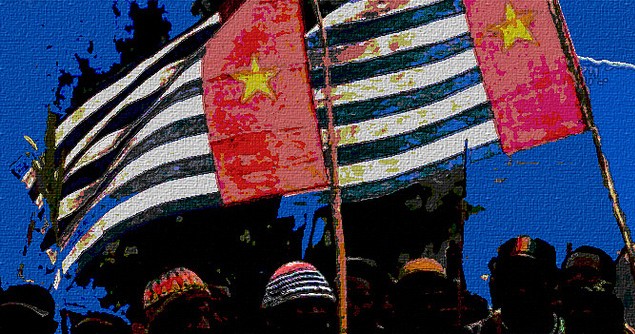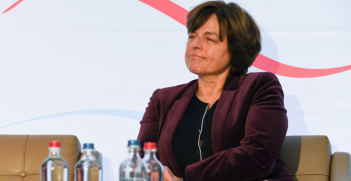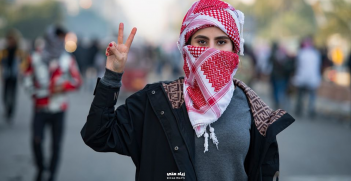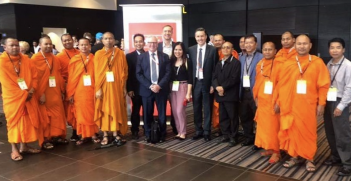West Papua: Hopes of Change with Jokowi Win?

The recent election victory of Joko Widodo has spurred hopes that Indonesia may be about to address the issues facing West Papua. But a number of factors could put a long-term solution out of reach for the incoming president.
Background
With Joko Widodo claiming victory in the recent presidential election, observers are hoping that the grievances of the West Papuan people might finally be addressed. The 53-year old, who engaged with a range of local leaders while campaigning for the 9 July election, has recently committed to an ongoing dialogue with West Papuans. The talks, which will be held every three months and involve either the president or a key team member, are likely to cover the controversial issues of economic disadvantage and self-determination. Yet it remains to be seen how successful the dialogue will be, with many locals sceptical that the government will, once again, fail to deliver on any promises made.
Comment
Observers are hoping that the recent victory of Joko Widodo, known as Jokowi, will herald a change in policy towards West Papua, with Jakarta addressing the key issues of economic disadvantage and self-determination. Since the annexation of the former Dutch colony in 1969, the area has been disrupted by a low-level armed separatist movement, resulting in widespread economic marginalisation and over 100,000 deaths. Indonesian leaders, until now, seemed content to maintain the status quo, banning media and many human rights organisations, despite the obvious suffering and squalid conditions many West Papuans have been subjected to. But the rise of a new president – one who is seemingly in touch with the plight of his fellow citizens – has renewed hopes that conditions in West Papua may improve.
Just days after Indonesia’s top court upheld his election triumph last month, Jokowi unveiled plans to build a new presidential palace on the shores of Lake Sentani in West Papua. The 23 August announcement was significant. Not only was it well received by most locals, it was also a symbolic gesture: an Indonesian president, for the first time, was now committed long-term to the welfare of West Papua. The move followed a series of talks between the incoming president and Papuan politicians and religious leaders, in which the plans to hold a national dialogue every three months were put forward.
Local stakeholders have reason to be cautiously optimistic. Unlike his predecessors, Jokowi does seem genuinely committed to resolving the issues that have plagued West Papua for over four decades. The former furniture salesman visited the region twice during the election campaign and, with the construction of the new palace, is expected to call in more frequently. That is in stark contrast to outgoing President Susilo Bambang Yudhoyono. Despite insiders privately claiming that he supported West Papuan freedom, the former general only visited the troubled area three times during his ten-year tenure. As John Djonga, a former Christian leader, said, ‘we have very strong hopes for Jokowi.’
Yet the challenges are vast and require more than well-meaning rhetoric and opulent houses. Though it is one of the most mineral-rich regions on earth, with some of the world’s largest gold and copper mines, West Papua remains Indonesia’s poorest province by far; its poverty rate, over 30 per cent, is almost three times higher than the national average. Meanwhile, on almost all indicators, including health, education, infrastructure and official corruption, it rates significantly worse than the Javanese heartland. Not surprisingly, many are leaving to seek brighter opportunities elsewhere in Indonesia, which is also contributing to an erosion of Melanesian culture. These problems demand long-term strategies and commitments on the part of the incoming government. Leadership from Jokowi, going beyond the usual lip-service paid to West Papua, is sorely needed.
Still, that is only part of the problem. While the issue of independence underscores almost all of the difficulties facing the region, the political stalemate is likely to continue for a number of reasons.
The West Papua region is home to some of Indonesia’s largest mines; that means its largest taxpayers too. Mining accounts for over ten per cent of its total GDP; with controversial new laws giving the government an even greater share of the spoils, Jakarta is unlikely to part with such riches anytime soon. Second, unlike East Timor, which, until independence was still legally administrated by Portugal, the international community has tacitly accepted Indonesia’s claims to West Papua, following the shambolic Act of Free Choice vote in 1969. Finally, Indonesia has recently become one of the world’s top-ten economies. Consequently, with its clout in the region on the rise, foreign governments are unlikely to take issue with it over West Papua, even in the face of widespread allegations of abuse and mistreatment.
For such reasons, a long-term solution may be out of Jokowi’s reach. Although the dialogue is undoubtedly a positive move, the lack of any consensus on the separatist movement will mean only piecemeal improvements, in areas such as education and healthcare, are likely to be achieved. The revolutionaries will continue their struggle.
Andrew Manners is a Research Analyst at the Indian Ocean Research Programme.
This article was originally published by Future Directions International. It is republished with permission





